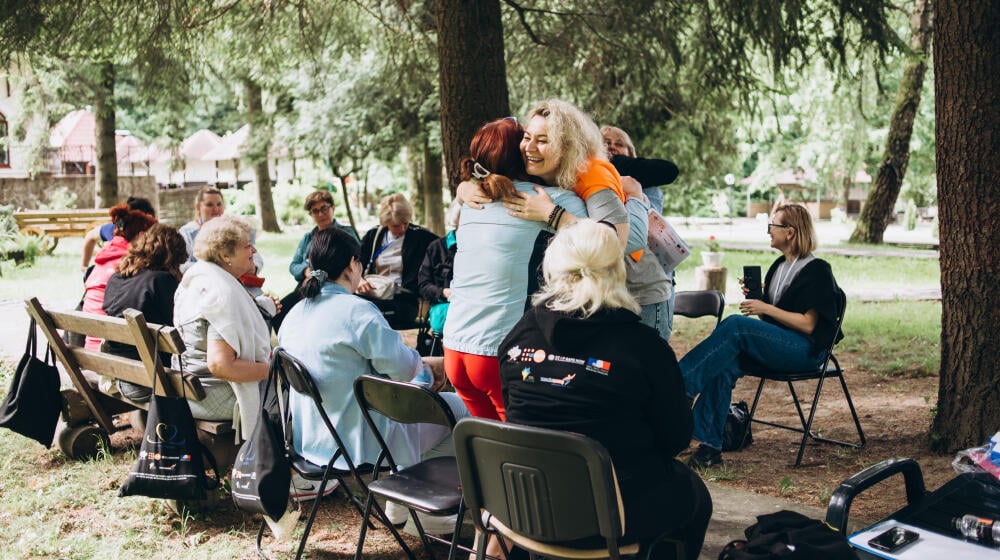A comprehensive recovery and rehabilitation program for women and girls affected by gender-based violence, including conflict-related sexual violence, was held in Zakarpattia. The program engaged 13 women who were either in captivity or living in previously occupied regions of Ukraine. Over two weeks, professional specialists helped the participants stabilize their condition, overcome or reduce post-traumatic symptoms, regain control over their lives, identify and neutralize triggers, master self-help techniques, practice effective self-care, and interact with others around them.
“I am very glad that I came here. Thanks to the entire team and the girls we were with, we managed to open up and learn to live with trauma without too much pain. We were taught how to cope with our fears and memories. We found the desire to live and to enjoy life,” says Larysa, a participant in the rehabilitation program.
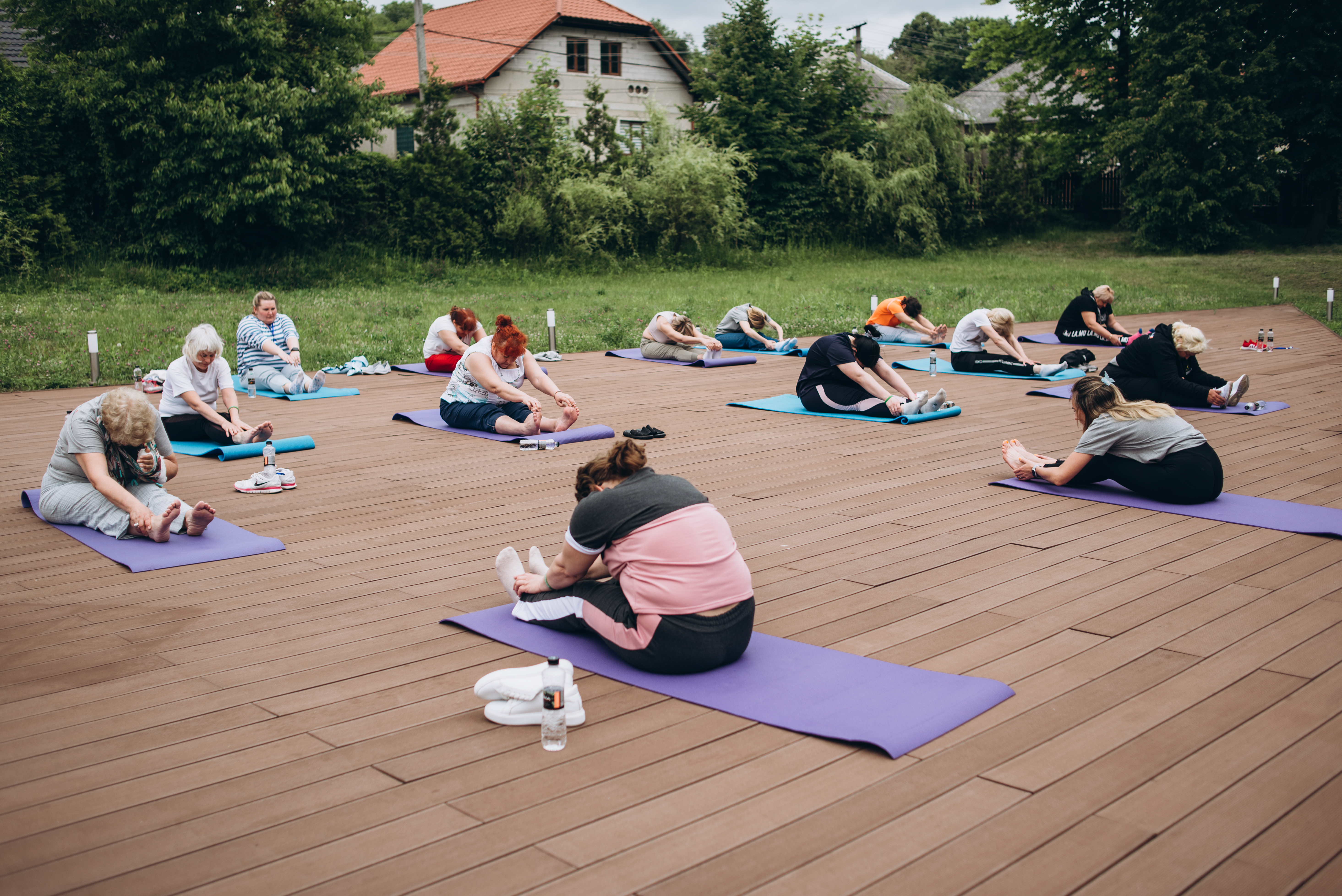
Larysa is from Kherson. When the full-scale Russian invasion began, she was in the city and later was captured by Russian soldiers. “There are many horrible memories that I tried to forget and hide far away. But it only made things worse. When I was invited to this rehabilitation program, I had many doubts, but I came,” she says, happy that she finally dared to participate. “Each step of our rehabilitation complemented another, piecing us together from small fragments.”
The rehabilitation program is comprehensive and aims at restoring mental, physical, and social health, as well as promoting opportunities in employment, education, housing, and financial security. In a safe space, participants shared their feelings and experiences. Each woman was accompanied by a case manager who considered their personal needs, individual condition, and requests, developing a plan to address them (both within this program and in their places of residence).
“After rehabilitation, I feel positive changes and a will to live. The place where the rehabilitation took place was wonderful, and the professional team was amazing. I was surrounded by caring people. It's impossible to highlight one thing in particular because each day was wonderful and each new step brought new positive emotions,” shares Olga, who survived violence and torture during the occupation of her hometown.
Communication skills, interaction with others, and creating a community and support groups of “peer-to-peer” were important aspects, says psychotherapist, Aurora platform supervisor and program trainer Tetiana Tymoshenko: “These aspects were included and worked on within the rehabilitation. As a result, the survivors feel reduced anxiety, depression, and post-traumatic symptoms.”
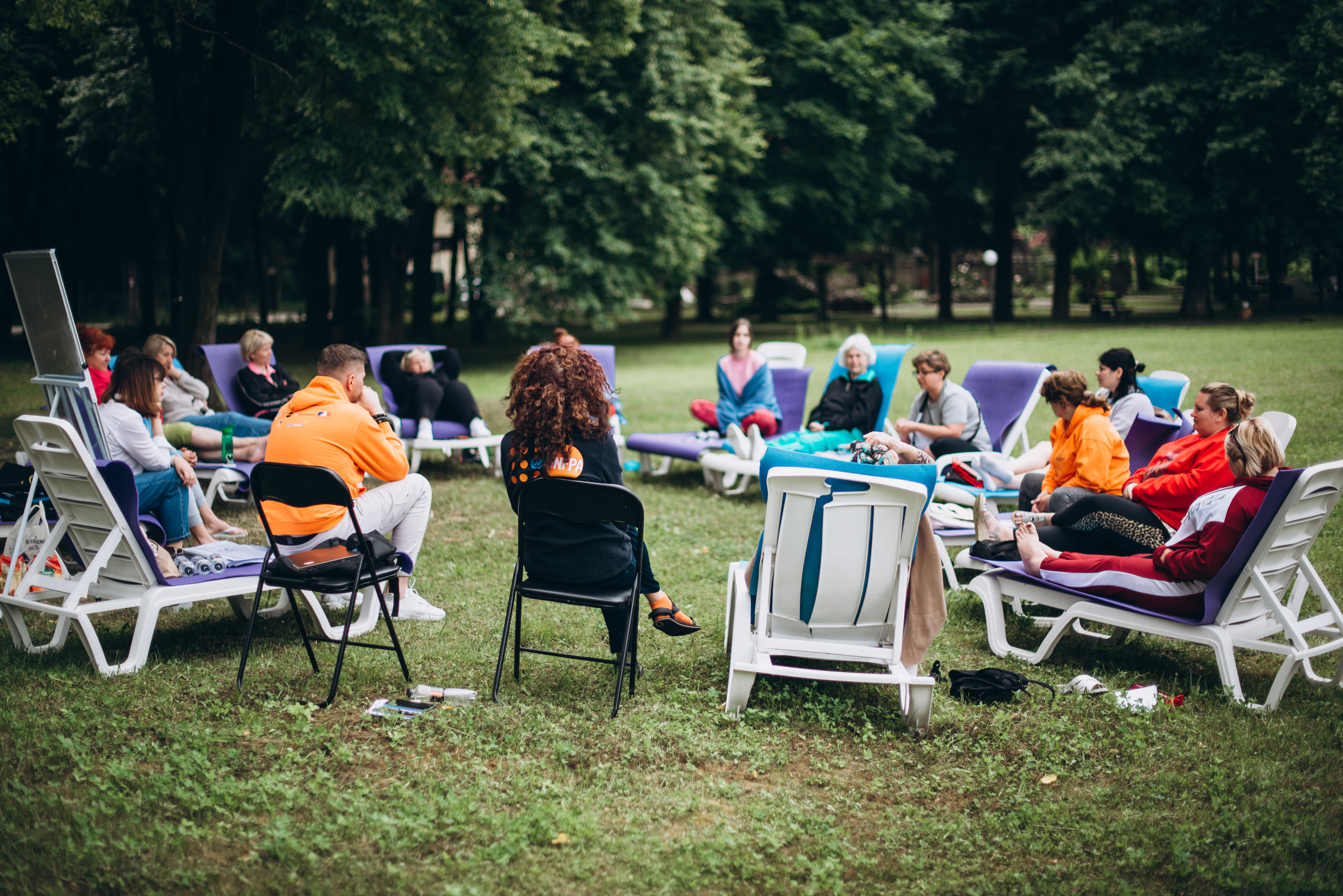
According to her, during rehabilitation, women, along with qualified specialists, explored triggers, learned stabilization techniques, worked on restoring lost self-esteem and confidence, building resources, and learned to take care of themselves.
“After rehabilitation, there is an improvement in physical condition, better sleep, and reduced chronic symptoms. Additionally, participants improved their communication skills and created a community with mutual understanding, emotional support, and awareness of a healthy lifestyle. All this contributes to their well-being,” shares psychotherapist Tetiana Tymoshenko.
In the early months of the full-scale invasion, Daria from the Kyiv region, along with her family, experienced occupation, interrogations, and simulated executions by Russian soldiers. After this, she was haunted by panic attacks and other psychological problems. Through rehabilitation, she learned to cope with her fears. “My condition has qualitatively changed. I worked through the traumas and triggers I got during the occupation. I understand how to deal with panic attacks and calm myself in stressful moments. I got rid of the guilt and survivor’s syndrome,” notes Daria after completing rehabilitation.
The rehabilitation program in Zakarpattia consisted of three parts and included theoretical and practical measures for women's holistic recovery, psychoeducation, and psychotherapeutic work (both group and individual), as well as medical examinations and treatment, and familiarization with local services for preventing gender-based violence. Additionally, participants received help cards and referrals in cases of GBV for further contact with relevant services in their communities. During the rehabilitation program, participants also had the opportunity to speak with the Government Commissioner for Gender Policy in Ukraine, Kateryna Levchenko.
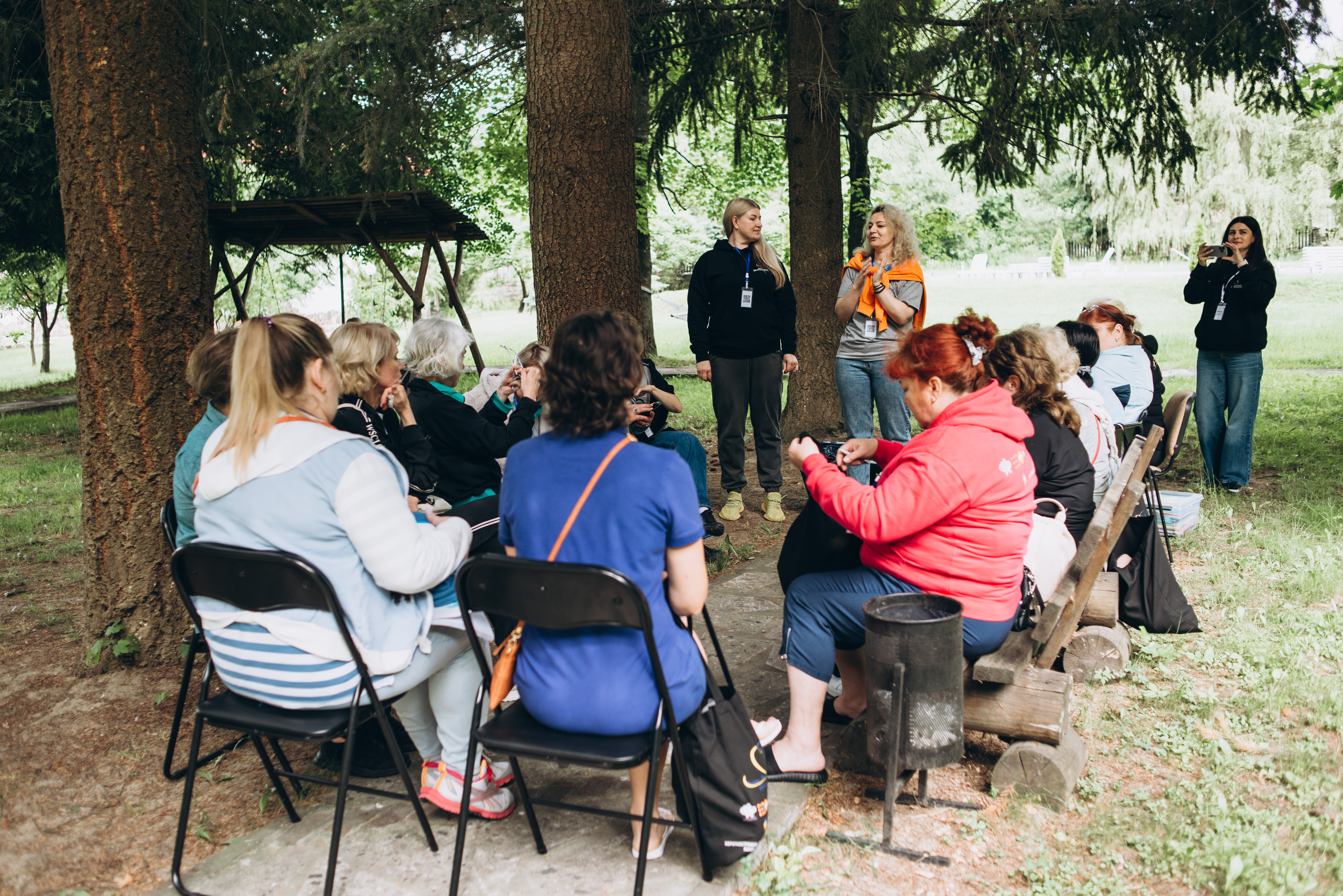
“I fully support this initiative, which is a clear example of effective interaction between the state, international, and public organizations, and an important element of implementing the Framework Program for Cooperation between the Government of Ukraine and the UN on preventing and countering conflict-related sexual violence. Rehabilitation programs can and should become a catalyst for survivors to return to active social life and be ready to testify against Russian war criminals. Rehabilitation programs are a source of strength that helps them come out of the shadows and return to life,” notes Kateryna Levchenko.
The rehabilitation program for women affected by violence is completely free and based on a model of holistic recovery and rehabilitation, using a person-centered, trauma-informed approach that relies on the person’s strengths and resources, supports their autonomy, cooperation with others, and empowerment.
The program is implemented by an experienced team with trauma expertise: NGO “Nehemiah” (which ensures the functioning of the Survivor Relief Center in Mukachevo) – local experts with the support of foreign experts; psychotherapists of the online platform “Aurora” with specialized qualifications in trauma therapy.
“For our team, it is a great honor to participate in the development and implementation of a short-term rehabilitation program for women affected by violence during the war. We provided all necessary resources and comprehensive support to the program participants. They are all amazing and resilient. We know for sure that these women will become guides of healing for others who survived violence by the aggressor during this unjust war,” says Tetiana Machabeli, Executive Director of NGO “Nehemiah.”
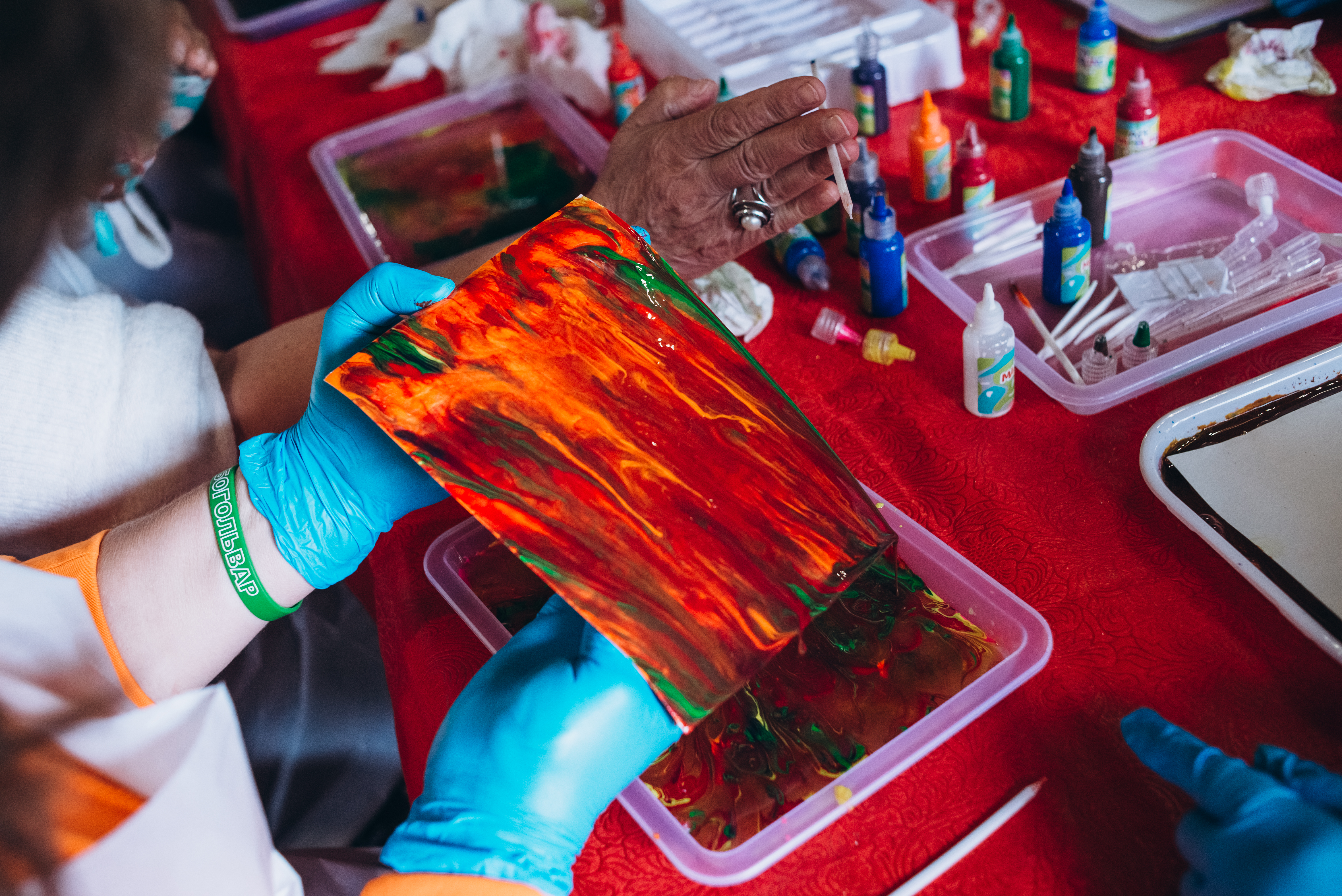
The program's development ensured inclusivity and the realization of the rights of those affected by violence, making sure their voices were heard, their needs, desires, and visions considered, which is crucial when discussing and making any decisions regarding the survivors.
“It is very important for us that the members of SEMA Ukraine, which unites affected women, were invited not only to participate in the recovery and rehabilitation program but also to provide feedback on its content, methods, and impact. Therefore, we worked hand in hand with the developers to make the program truly effective. I want to emphasize that all our wishes and comments were considered,” notes Lyudmyla Huseinova, Communications Director of NGO “SEMA Ukraine.”
Lyudmyla Huseinova notes that SEMA is a partner of the rehabilitation program, supports it, and sincerely recommends it to other women who have experienced sexual violence during the war. This joint program includes the approaches “nothing about us without us” and “peer-to-peer,” involving women with similar experiences, which promotes exchange, mutual help, support, cooperation among participants, and expands the social network of mutual assistance.
“I want to express my gratitude to all the mentioned partners and donors – the Government of France and the “UN Action Against Sexual Violence in Conflict” – thanks to whom this rehabilitation program became possible. It is very important when the issue of supporting survivors attracts the attention of the international community and national players. Our program is an integral link in the system of assistance to CRSV survivors, making this assistance truly comprehensive,” emphasizes Olga Chuyeva, UNFPA Programme Analyst for CRSV Prevention and Response.
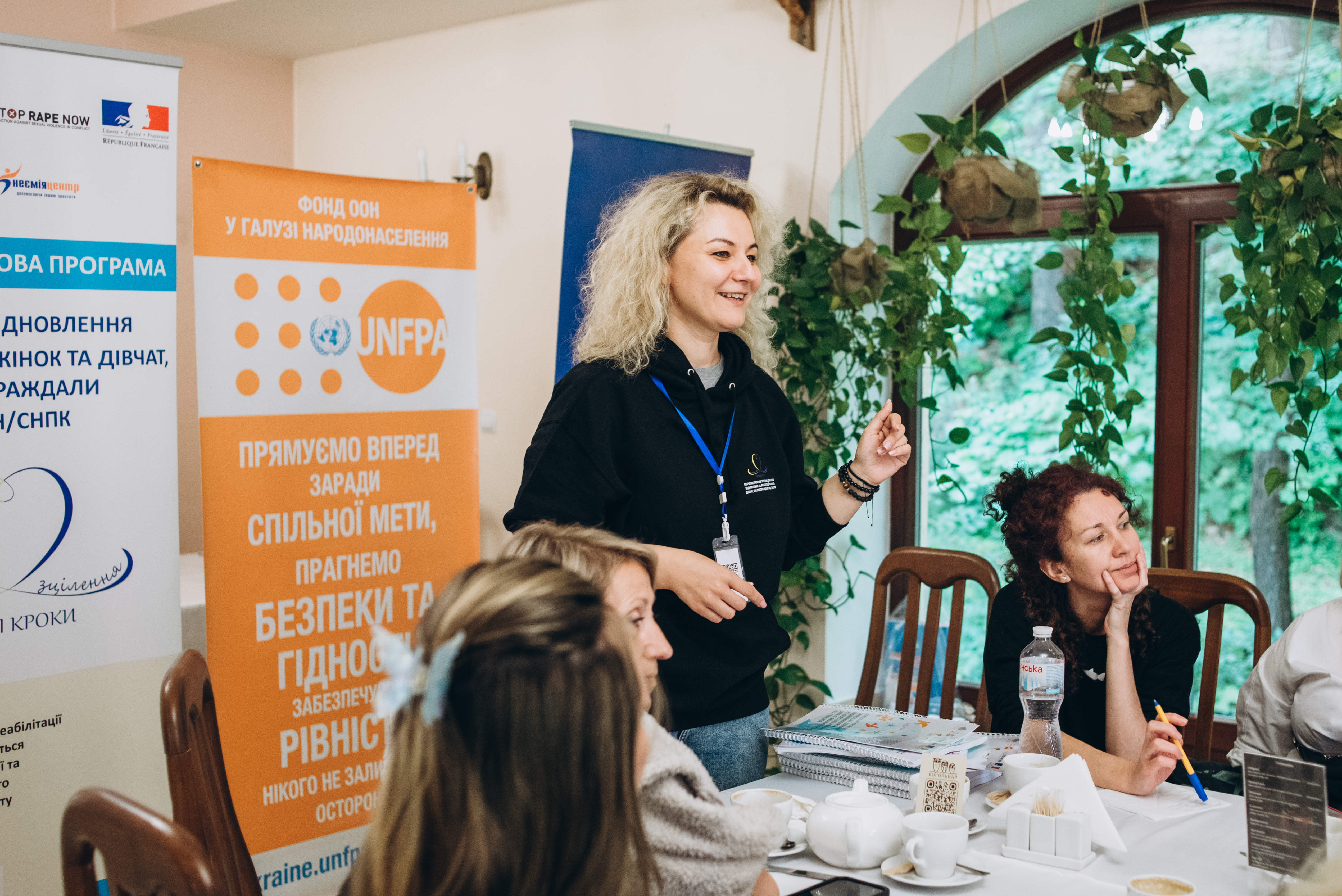
According to Olga Chuyeva, the pilot phase of the project is completed, and work has already begun on implementing the next two cycles of the program for women and launching therapeutic support groups for its graduates. Additionally, the final stage of training in the format of “training for trainers” with the subsequent formation of a pool of program trainers will take place. This can also aid in creating a network of psychologists and psychotherapists providing assistance to CRSV survivors, ensuring the possibility of training based on the “peer-to-peer” principle and exchanging best practices for helping survivors.
“Our plans include, in cooperation with the Ministry of Social Policy of Ukraine, updating work on the state standard for the social service of psychosocial rehabilitation for persons affected by domestic violence and/or gender-based violence, which is important for ensuring quality assistance to survivors. Together with partners, we will also explore the possibility of organizing family therapeutic support and developing a rehabilitation program for men and boys in cooperation with the network of former male prisoners and torture survivors “Alumni.” It is important that all the above actions are carried out in the framework of the Cooperation Program between the Government of Ukraine and the UN, thus strengthening the response system to CRSV,” notes Olga Chuyeva.
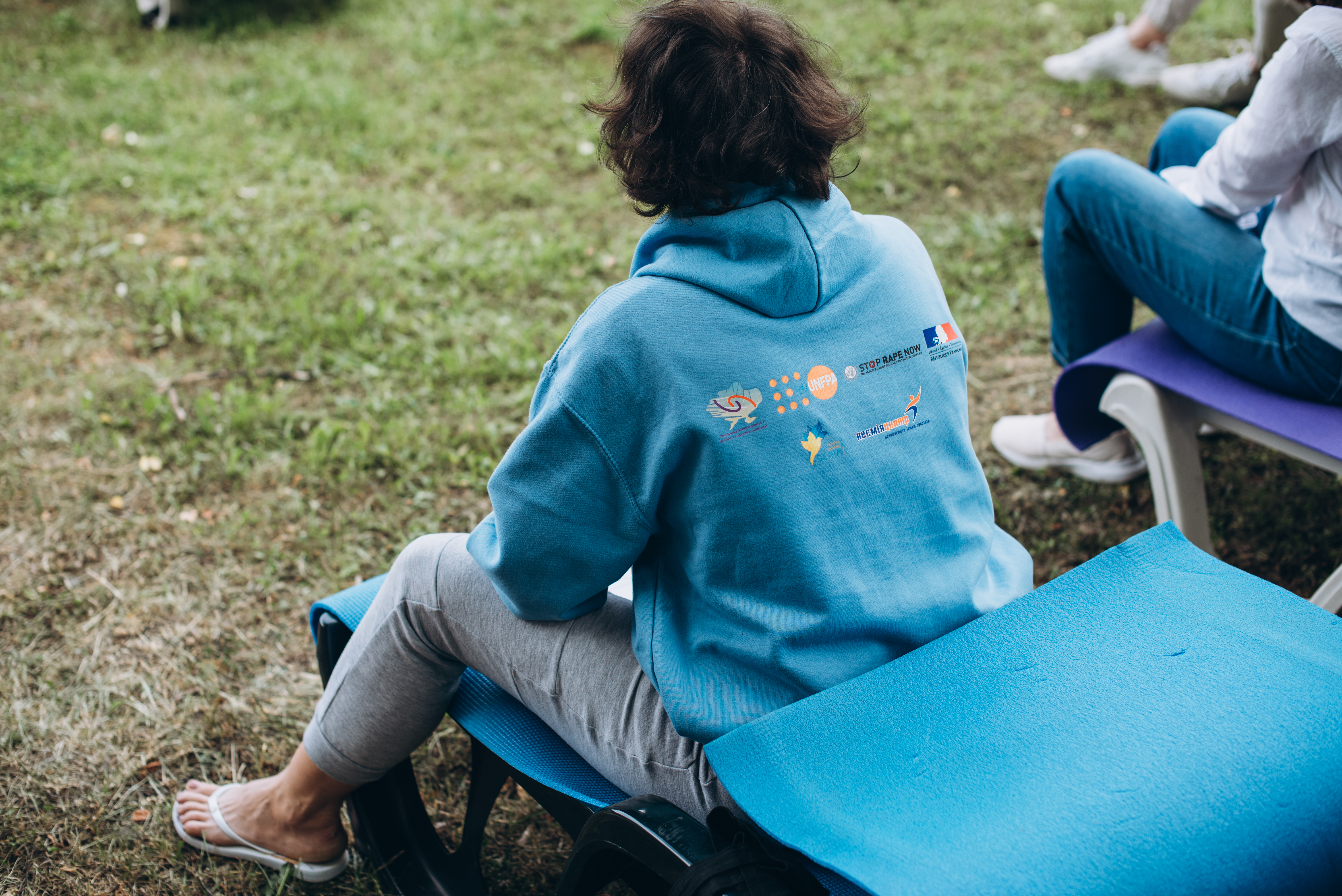
The rehabilitation and recovery programme for female survivors of GBViE/CRSV is developed and implemented by UNFPA, the United Nations Population Fund in Ukraine, together with the NGO Nehemiah in partnership with the SEMA Ukraine network of female survivors of sexual and gender-based violence and Government Commissioner for Gender Equality Policy under financial support from the Government of France and the UN Action against Sexual Violence in Conflict.
The UN Action supports implementation of the UN Interagency Project ‘Strengthening national and community-based CRSV prevention and response mechanisms in Ukraine through a survivor-centred multi-sectoral approach’ (UNited Action to Empower Survivors of CRSV, https://ukraine.unfpa.org/en/StopRapeNow_Project_Eng). The project is being run jointly by UNFPA, UNODC, UNDP, IOM, UN Women and WHO.

